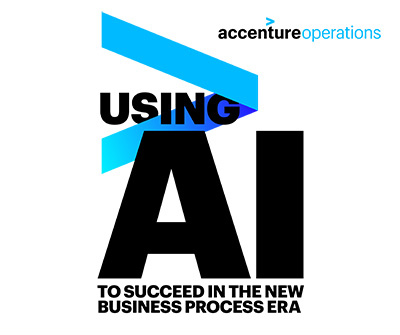 Editor's note: Kristin Ruehle leads the Procurement Business Process Services (BPS) offering globally for Accenture Operations. In this role, Kristin helps guide the development and enhancement of Accenture's end-to-end Procurement BPS capabilities across the globe, including sourcing and category management, and Procure-to-Pay.
Editor's note: Kristin Ruehle leads the Procurement Business Process Services (BPS) offering globally for Accenture Operations. In this role, Kristin helps guide the development and enhancement of Accenture's end-to-end Procurement BPS capabilities across the globe, including sourcing and category management, and Procure-to-Pay.
Most recently this includes envisioning next generation digital procurement. Kristin is passionate about helping companies architect their own procurement transformation and, prior to her role as the offering lead, she led large source to pay transformation programs across a variety of industries including retail, pharmaceuticals, public sector, and financial services.
In this exclusive interview with Supply Chain Management Review, she goes into greater detail on the implications of digitization.
Supply Chain Management Review: How will supply chain managers address risk in an increasingly digitized world?
Kristin Ruehle: Risk continues to be top-of-mind for many of our clients, and that fact doesn't change with the move to digital procurement. However, next-generation, digital procurement does provide tools and data insights that make it easier for companies to mitigate risk, ensure compliance, and achieve greater visibility into spend across all layers of the supply chain.
SCMR: Can “Big Data” also be a burden?
Ruehle: Businesses today have at their disposal a huge wealth of data both in and outside their organizations that can help them understand and mitigate risk. Digital tools help by providing the means by which businesses can evaluate, assess, and consolidate this data to understand the potential impact of various trends and events on the organization. The better able businesses can leverage data rapidly, the better able they are to manage risk across the supply chain.
SCMR: Which industries will embrace digitized procurement first?
Ruehle: At Accenture, we've seen companies in all industries embrace the digital procurement movement. In some industries, including financial services, the driver is primarily regulatory compliance, while for others, such as manufacturing, the catalyst is the need to mitigate risk. Whatever the driver, every industry can benefit from digital procurement; all it takes is to recognize the need for change and understand that this is a huge departure from how procurement has traditionally operated.
SCMR: Can you suggest a checklist?
Ruehle: There are three things to consider here. First: transformation takes time. Companies need to collect the relevant data, develop the necessary systems, and build the underpinning analytics and AI. Second: digital procurement requires investment. Fortunately, digital procurement capabilities are increasingly available as a service, which could reduce upfront investments and accelerate transformation. Finally: transformation takes vision. This is big departure from how procurement has traditionally operated. Companies need to have an internal champion who can define what the future procurement organization will look like and how the company can make it a reality.
SCMR: So what is the key differentiator?
Ruehle: Businesses that understand the scale of the transformation project ahead, and can secure the support of the C-Suite to drive forward this change, will be able to make the transformation more rapidly and successfully than those that don't.
SCMR: Which industries will be the laggards? And Why?
Ruehle: The companies that will be left behind are those not willing to make the change to digital procurement, or fail to see the power of investing in the future today. Many companies still think they can make the changes that are required without help from outside the organization. This simply isn't the case. For example, no one company will be able to produce enough data or insights to power the AI applications that will lie at the heart of digital procurement. Companies need to gather the right data; looking beyond what was purchased and at what price to more interesting areas such as why it was purchased. So, companies that leave their transformation at eProcurement and ERFx tools will soon fall behind; what's needed are technologies that work with eProcurement and ERFx tools to make sense of data and draw out critical insights to improve decision-making.
SCMR: So what is the weak link?
Ruehle: I also think businesses that fail to focus on the user experience will fall behind. The easier it is for a person to use a new tool the more they are likely to use it, rather going around the system. Businesses that can create truly intuitive experiences will be able to more fully realize the benefits of their technology investments.
There will need to be organizational changes. Businesses need to review policies and procedures to ensure everyone in the organization understands the new approach to procurement and what it means for them. Additionally, digital procurement is going to require a new set of skills for the procurement organization. As a result, businesses will need to build cross-functional teams that include data scientists, AI specialists, category experts and IT and design processionals. If any organization falls short on any of these points they will struggle to keep up with businesses that have got their transformation right.
SCMR: Any final thoughts on transformation?
I believe that every business should be looking at what they can do now to get their digital transformation underway. First, the business should start looking at their data capture capabilities, developing an intentional data strategy and identifying gaps for contextual data. Second, they should be reviewing their intelligent tools strategy and leveraging analytic throughout Source-to-Pay for all decisions. The business should identify their organization readiness for deep transformation.
SC
MR


Latest Supply Chain News
- Few executives believe their supply chains can respond quickly to disruptions
- Technology’s role in mending supply chain fragility after recent disruptions
- Tech investments bring revenue increases, survey finds
- Survey reveals strategies for addressing supply chain, logistics labor shortages
- Israel, Ukraine aid package to increase pressure on aerospace and defense supply chains
- More News
Latest Podcast

 Explore
Explore
Procurement & Sourcing News
- Israel, Ukraine aid package to increase pressure on aerospace and defense supply chains
- How CPG brands can deliver on supplier diversity promises
- How S&OP provides the answer to in-demand products
- There is still work to do to achieve supply chain stability
- Blooming success: The vital role of S&OE in nurturing global supply chains
- How one small part held up shipments of thousands of autos
- More Procurement & Sourcing
Latest Procurement & Sourcing Resources

Subscribe

Supply Chain Management Review delivers the best industry content.

Editors’ Picks





